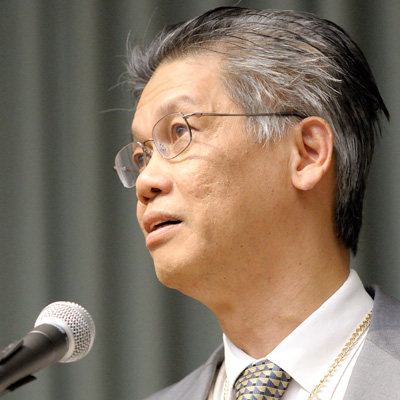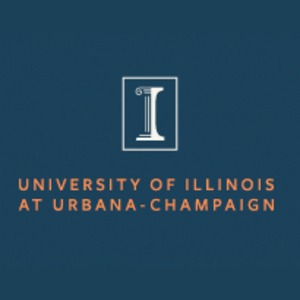Equations with incredible accuracy, incorporating modern physics, are the key to future advancement
Maxwell’s equations are some of the most important equations in physics because of their incredible impact on many technologies including, phones, computer chip design, wireless technologies, oil exploration, remote sensing, inter-galactic signals, radio astronomy, and more. Valid from sub-atomic length scales all the way to galaxy length scales; from static to ultraviolet frequencies; from classical physics to quantum physics, these equations have incredible predictive power for numerous novel applications. In fact, Maxwell’s equations have been validated to about a few parts in a billion, which is the size of a few millimeters compared to the distance from New York to Los Angeles. Dr. Weng Cho Chew, George and Ann Fisher Distinguished Professor of Electrical and Computer Engineering at the University of Illinois, Urbana-Champaign has dedicated his professional career to studying efficient ways to solve Maxwell’s Equations with the hope that they may advance fundamental science towards technology developments and applications for the future.
With beauty interwoven within the complexity of Maxwell’s equations, Dr. Chew’s research brings deeply theoretical mathematical computations to life through the promise of applied research work that will advance frontier technologies. These equations have far ranging impact, when solved with modern math and physics concepts, as well as harnessing the power of parallel computers. This is made possible by the incredible accuracy of Maxwell's equations. Therefore, studying efficient ways to solve these equations enables designs and applications that are useful in engineering and science. Dr. Chew’s work helps to find solutions for multi-scale structures as found in computer chip design, and a whole sleuth of other applications, such as nano-optics and subsurface sensing for oil. He is also studying the use of these solutions in predicting quantum behavior such as Casimir force, heat transfer, quantum optics, and quantum information. Additionally, the newest frontier in Dr. Chew’s group has been to couple mathematical and computational models with classical and quantum electromagnetics!
Current research includes:
-
Quantum Effects on Electromagnetics: Casimir force is a kind of force that has been confirmed and measured very recently, in 1997. Calculating and predicting this force would enable a boom in technologies for the future. Dr. Chew’s group is investigating the role of Maxwell’s equations in the calculation this force to establish its mathematical foundation.
-
Quantum Optics: Wireless technologies are reliant upon electromagnetic signals. Dr. Chew’s lab is studying quantum effects on optical signals to help improve the understanding and efficiency and information content of electromagnetic signals. In so doing, he could potentially shift and understand the ways technologies rely upon electromagnetic signals.
-
Quantum Effects in Heat Transfer: Dr. Chew is looking at the solution techniques that can be vastly improved the understanding of quantum effects in heat transfer. This research can in turn be used to predict the behavior of systems that rely on this kind of physics.
-
Multiscale Calculations: Dr. Chew is solving Maxwell’s equations over vast length scales. His research is likely to help advance the design of computer chips and thus have an important impact when developed.
Bio
Dr. Weng Cho Chew was raised by a hardworking family that valued academics and persistence. Growing up in Malaysia, he went to high school with the hope of being selected for study abroad in the US. To his excitement, he was chosen to attend MIT where he eventually earned his B.S.E.E., M.S.E.E., and Ph.D.E.E. in Electrical Engineering and completed his postdoctoral training. Dr. Chew continues to be motivated to conduct research because of his love for the process of knowledge discovery and its potential to make the world a better place.
Dr. Chew teaches undergraduate courses and graduate courses. Throughout his career at University of Illinois, Urbana-Champaign, he has taught a large variety of undergraduate courses, ranging from electrical machinery, linear systems, electronic devices, electromagnetic fields and waves, to quantum mechanics for electrical engineers. He also teaches graduate courses in fundamental electromagnetics, waves and fields in inhomogeneous media, and theory of microwave and optical waveguides. He seeks to explain difficult concepts in a simple way so that one can obtain good physical insight from the complicated mathematics. He often supplements his lectures with supplementary lecture notes. He believes in the adages, "Once the mind is stretched, it does not regain its original dimension," and, "If you can't explain something simply, you don't really understand it." He is the winner of IEEE Graduate Teaching Award, the UIUC Campus Award for Excellence in Graduate and Professional Teaching, and IEEE AP Chen-To Tai Distinguished Educator Award. He has been elected to the US National Academy of Engineering. More recently, he has been awarded the 2015 Computational Electromagnetics Award from the Applied Computational Electromagnetics Society for "Pioneering contributions to fast algorithms for electromagnetic scattering and inverse scattering methods."
Aside from research, in his free time, Dr. Chew participants in Tai Chi in which he is able to balance the rigor of his academic professional career with deliberate relaxation exercises.
Website: http://www.ece.illinois.edu/directory/profile/w-chew


